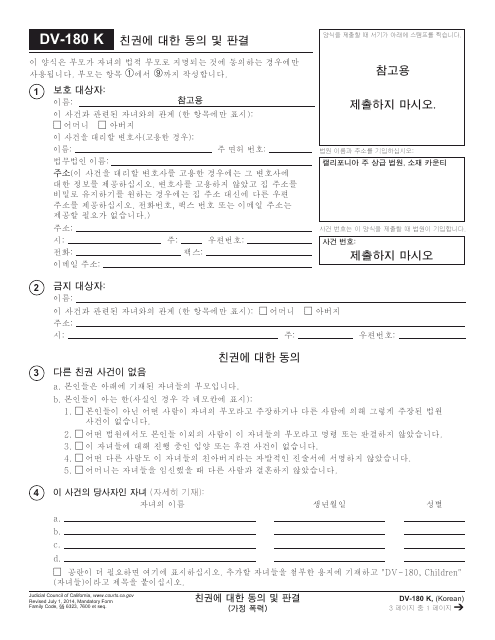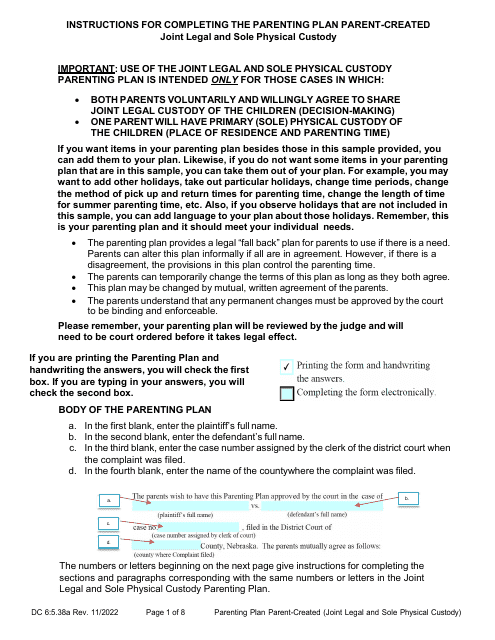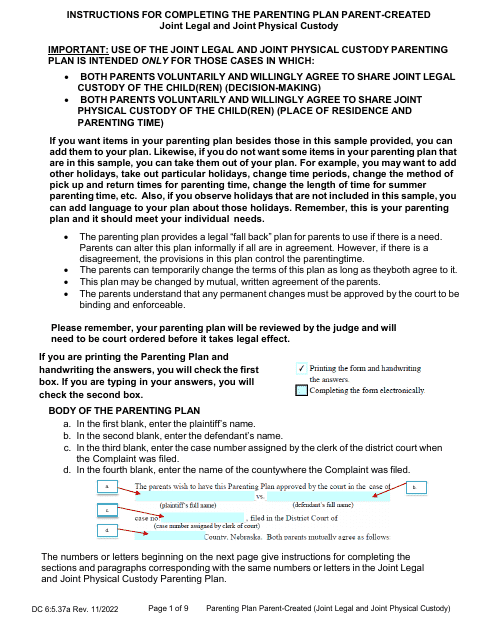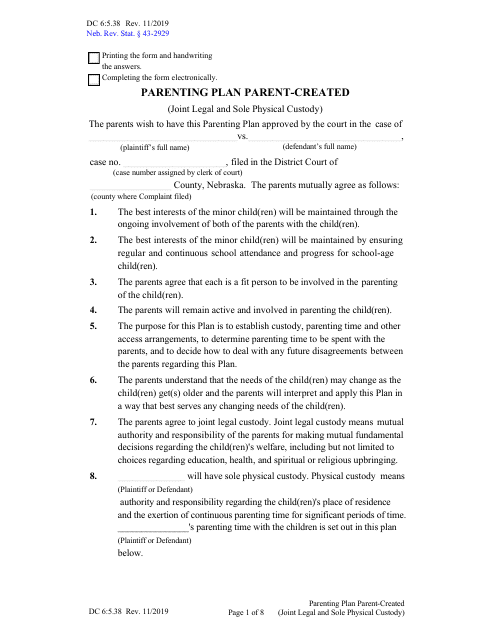Joint Legal Custody Templates
Joint Legal Custody: Supporting Co-Parenting Relationships
When parents separate or divorce, the issue of child custody often arises. One option that many families choose is joint legal custody, also known as shared legal responsibility. This arrangement allows both parents to have equal decision-making authority regarding important matters involving their children.
Joint legal custody ensures that both parents have a say in important decisions, such as the child's education, healthcare, religious upbringing, and other significant life choices. It promotes cooperation and collaboration between parents, emphasizing the importance of maintaining a stable and harmonious environment for the child's well-being.
In various states, like California and Nebraska, courts provide specific legal forms and instructions that help parents establish a joint legal custody agreement. These documents, such as the Form DV-180 K Agreement and Judgment of Parentage in California and the Instructions for Form DC6:5.38 Parenting Plan Parent-Created (Joint Legal and Sole Physical Custody) in Nebraska, guide parents through the process of creating a comprehensive parenting plan.
By creating a parenting plan, parents can set clear guidelines for raising their children together, even in separate households. This plan may outline the regular visitation schedule, holiday and vacation arrangements, and ways to resolve conflicts that may arise in the future.
While joint legal custody may not be suitable for all families, it can provide numerous benefits when implemented successfully. It allows both parents to remain actively involved in their children's lives, ensuring that important decisions are made collectively. Research suggests that children who benefit from joint legal custody often experience improved emotional well-being and overall adjustment during and after the divorce or separation of their parents.
If you are considering joint legal custody or need assistance in navigating the process, it is crucial to consult with a qualified family law attorney or mediator. They can provide guidance tailored to your specific circumstances and help you understand your rights and responsibilities as a co-parent.
Remember, the ultimate goal of joint legal custody is to prioritize the best interests of the child and promote a healthy co-parenting relationship. With the right resources and support, parents can successfully navigate the challenges of joint legal custody and provide a stable and loving environment for their children to thrive.
Documents:
6
This form is used for establishing parentage and reaching an agreement in California. It is specifically for cases involving Korean language.
This form is used for creating a parenting plan in Nebraska when parents have joint legal custody and one parent has sole physical custody.




